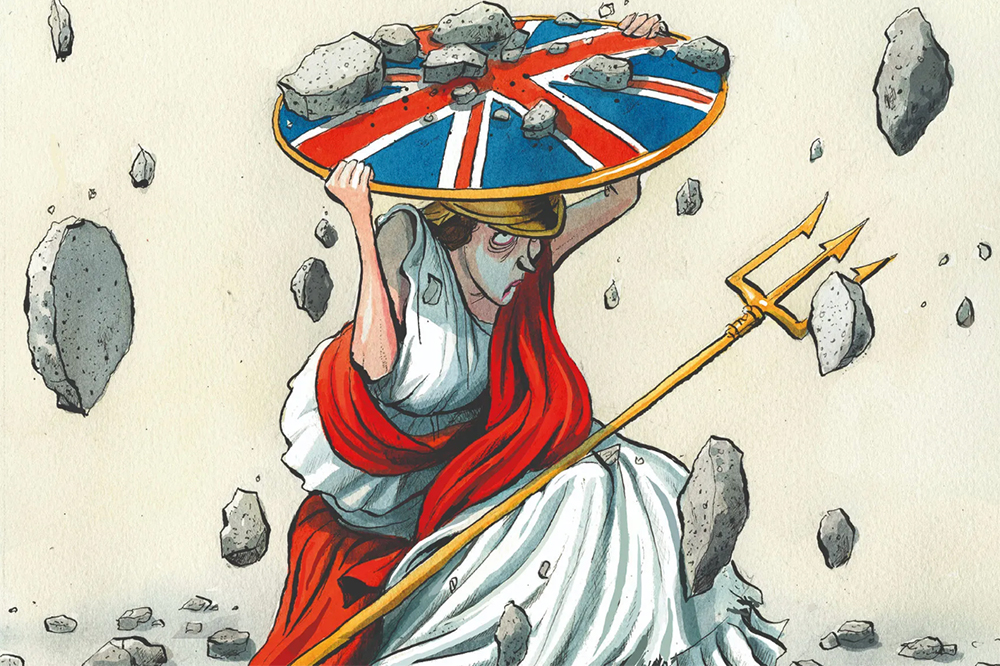Anyone would think (anyone, that is, who has followed our three main annual party conferences this autumn) that Britain’s principal political parties were proposing distinct solutions to Britain’s problems. After all, the heat if not the light emitted by domestic politics in recent years has been unremitting. Sir Keir Starmer spent more than half his conference speech in Liverpool attacking Rishi Sunak and the last 13 years of Conservative government. Mr Sunak, meanwhile, rose to a level of scorn quite untypical of this relatively polite man, when in his Manchester speech he laid into another relatively polite man, Sir Keir, and the Labour party he leads. These heightened levels of aggression (you might have thought) must betoken sharply contrasting proposed answers to some of the big questions our nation faces.
To me at least, the language of both parties failed to match the sheer scale of the worry
Let me suggest four. Abroad, I suppose the dominating puzzle is what to do about China. At home, three more. What to do about the National Health Service; how to fund social care for the growing numbers of the elderly; and how to inject productivity and growth into our economy.
These three domestic questions are linked, of course; but the difficulties with the NHS are not only about funding, and the problems with social care are not financial alone. Each presents a question of its own, as do relations with China.
So if our politics is faced with four big questions, and if in a democracy our political parties are there to compete for the best answers, what are the competing bids to each? ‘Must there be?’ you ask. No, I suppose it’s imaginable that there existed a good consensus on what to do, and parties bid simply to be chosen as best able to do it.








Comments
Join the debate for just £1 a month
Be part of the conversation with other Spectator readers by getting your first three months for £3.
UNLOCK ACCESS Just £1 a monthAlready a subscriber? Log in